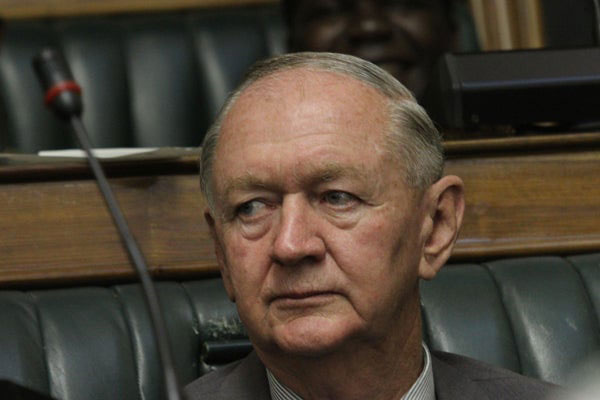
BY MTHANDAZO NYONI
THE second foreign currency auction set for Tuesday will be a real test for the Reserve Bank of Zimbabwe’s latest measures to halt the collapse of the local currency as bidders are likely to have gained confidence in the system, economists have said.
The first US dollar weekly auction was held last Tuesday where slightly less than 100 bidders participated with total bids of US$11,4 million. The auction brought the ZW/US$ exchange rate to 57:1 from the hitherto official rate of 25:1.
The bids last week ranged between 100:1 to 25:1 and most of them were accepted and paid. The Reserve Bank allocated US$10,4 million to the successful bidders at a cost of Z$600 million.
The second auction takes place on Tuesday and Eddie Cross, an economist and member of the Monetary Policy Committee, said if the central bank is able to accommodate at least 95% of forex applications, the economic trajectory will change.
Cross said the new changes represent a real step forward for Zimbabwe in trying to stabilise its currency and restore the economy to real growth.
“It has the potential to transform the way we do businesses in Zimbabwe and I am personally optimistic that it’s going to change the situation with regard to the instability of the exchange rate and the inflation in local prices,” he said
“I think Tuesday next week it’s going to be a real test. I think last week was a trial run that was successfully conducted, but next Tuesday it’s going to be a real test and if the Reserve Bank is able to accommodate 95% of applications on Tuesday, it will have a profound impact on the entire economy.”
- Chamisa under fire over US$120K donation
- Mavhunga puts DeMbare into Chibuku quarterfinals
- Pension funds bet on Cabora Bassa oilfields
- Councils defy govt fire tender directive
Keep Reading
In an opinion piece, Cross said should these new arrangements result in exchange rates settling down at a more market-related level, it is hoped that retail prices will start declining to reflect the lower cost of doing business.
“Individuals and companies with goods and currency bought at the much lower exchange rates that have applied recently will have to manage the situation very carefully,” he said.
Cross said changes to the Gold Trading system also introduced recently will allow market prices to rise to world market levels, reduce smuggling and reduce demand for US$ for trading purposes.
“It is hoped this will further strengthen the market system and allow exchange rates to reflect market realities. The decision by government to pay civil servants a hard currency allowance by means of a preloaded electronic card is also welcome, but it puts pressure on the private sector to ensure they are able to accept such cards for all transactions,” he said.
“If they can, then this will further strengthen their ability to trade electronically in hard currencies at points-of-sale and at the same time increase their earnings of hard currency for their nostro accounts.”
In its response paper on the evaluation of the recently announced fiscal and monetary policies, the country’s largest industrial body, the Confederation of Zimbabwe Industries (CZI), said the introduction of the auction system offered an opportunity for the stabilisation of the Zimbabwe dollar and the elimination of the major macro-economic distortions in the economy — namely the exchange rate.
“We know why it failed, but will we learn from history and avoid the same mistakes,” CZI said.
“As we all know, the key success factors are: allow the auction to be a true auction and maintain iron-clad fiscal and monetary discipline.”
Another economic analyst, John Robertson, said the system could work depending on forex availability.
“It could work depending on the balances, if enough money is available next week,” Robertson said.
“What we have to worry about is how much the government gets. We don’t know what government is taking. Government apparently doesn’t bid like the rest.
“So that’s the problem. If we could find out what is happening there, we will know better what is coming next.”











